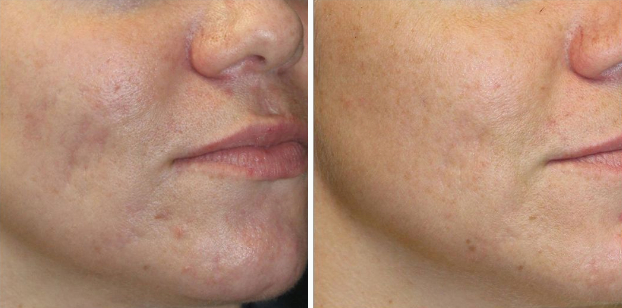The Importance of Quality Sleep for Seniors
Quality sleep is essential for seniors, as it contributes to several aspects of their overall health:
- Cognitive function: Sleep is crucial for maintaining cognitive abilities, memory consolidation, and mental sharpness.
- Emotional well-being: Adequate rest is vital for regulating mood and reducing the risk of depression.
- Physical health: Sleep is necessary for tissue repair, immune system function, and hormone regulation.
Common Sleep Issues Among Seniors
Several sleep issues can arise as we age, which can negatively impact the overall quality of rest:
- Insomnia: Difficulty falling asleep, staying asleep, or waking up too early.
- Sleep apnea: A potentially severe disorder characterized by pauses in breathing during sleep.
- Restless Legs Syndrome (RLS): A neurological disorder causing uncomfortable sensations in the legs, resulting in an irresistible urge to move them.
- Circadian rhythm disruptions: Changes in sleep-wake cycles that can lead to sleep disturbances.
Strategies to Improve Sleep Hygiene for Seniors
By adopting healthy sleep habits and incorporating targeted therapies, seniors can enhance their sleep quality:
- Establish a consistent sleep schedule: Go to bed and wake up at the same time every day to regulate the internal body clock.
- Create a sleep-friendly environment: Maintain a cool, dark, and quiet bedroom, free from distractions and electronic devices.
- Exercise regularly: Engage in moderate physical activity to improve sleep quality and duration.
- Limit caffeine and alcohol intake: Consuming these substances close to bedtime can interfere with sleep patterns.
Supplements and Peptide Therapy for Sleep Enhancement
Seniors may benefit from supplements and peptide therapy to further improve sleep quality:
- Melatonin: A hormone that helps regulate the sleep-wake cycle, melatonin supplements can be useful for those struggling to fall asleep.
- Magnesium: This essential mineral aids in muscle relaxation and can improve sleep quality when taken in supplement form.
- Valerian root: An herbal remedy known for its sedative properties, valerian root can be taken as a supplement to promote relaxation and sleep.
- Peptide therapy: Targeted peptides such as DSIP (Delta Sleep-Inducing Peptide) have been shown to enhance sleep quality and duration, making it a promising option for seniors.
Nutrition and Its Impact on Sleep Quality for Seniors
A balanced diet plays a significant role in ensuring quality sleep for seniors. Consuming foods rich in nutrients like tryptophan, vitamin B6, and magnesium can contribute to improved sleep. Some sleep-promoting foods include:
- Almonds and walnuts: Rich in magnesium and melatonin, these nuts aid in muscle relaxation and sleep regulation.
- Bananas: Packed with magnesium, potassium, and vitamin B6, bananas can help seniors relax and sleep better.
- Cherries: A natural source of melatonin, cherries can help regulate sleep patterns.
- Fatty fish: Rich in omega-3 fatty acids and vitamin D, fatty fish like salmon and mackerel can improve sleep quality and duration.
Lifestyle Adjustments for Enhanced Sleep Quality
Incorporating healthy lifestyle choices can have a positive impact on sleep quality for seniors:
- Manage stress and anxiety: Engage in relaxation techniques, such as deep breathing exercises, progressive muscle relaxation, and meditation to reduce stress and promote a sense of calm before bedtime.
- Social connections: Maintain strong social connections to alleviate stress, increase physical activity, and instill a sense of purpose and well-being, all of which contribute to better sleep.
- Limit exposure to screens before bedtime: The blue light emitted from electronic devices can interfere with the production of melatonin, so it’s essential to limit screen time in the evening.
- Establish a bedtime routine: Create a consistent pre-sleep routine that signals to the body and mind that it’s time to wind down and prepare for sleep.
The Role of Sleep Aids and Devices
Seniors can also benefit from using sleep aids and devices to support their sleep hygiene:
- White noise machines: These devices can help mask disruptive noises and create a soothing environment conducive to sleep.
- Weighted blankets: The gentle pressure from a weighted blanket can help reduce anxiety and promote relaxation, leading to better sleep.
- Sleep tracking devices: Wearable sleep trackers or smartphone apps can help seniors monitor their sleep patterns and identify areas for improvement.
In conclusion, quality sleep plays a crucial role in the overall health and well-being of seniors. By addressing common sleep issues and implementing strategies to improve sleep hygiene, including the use of supplements, peptide therapy, proper nutrition, lifestyle adjustments, and sleep aids, seniors can enjoy better rest and maintain their cognitive, emotional, and physical health. With the right approach to sleep and aging, seniors can look forward to more restful nights and a healthier, more vibrant future.
